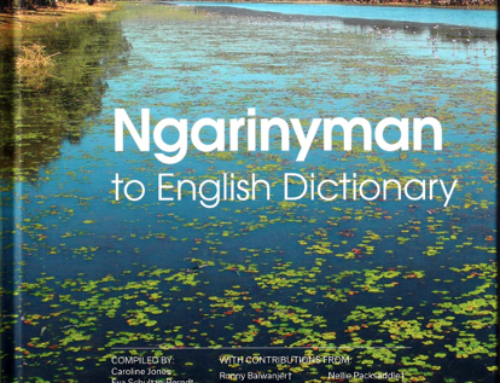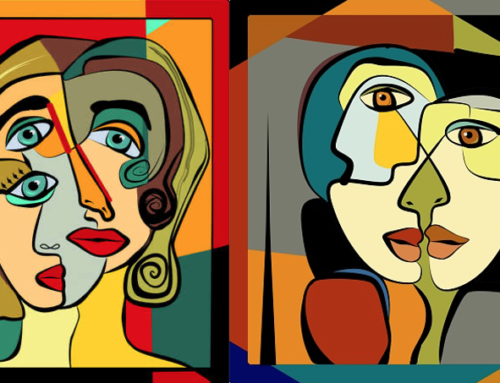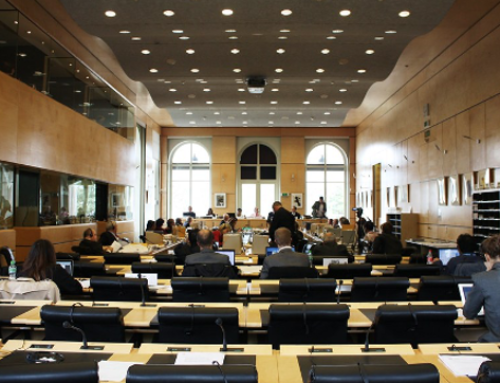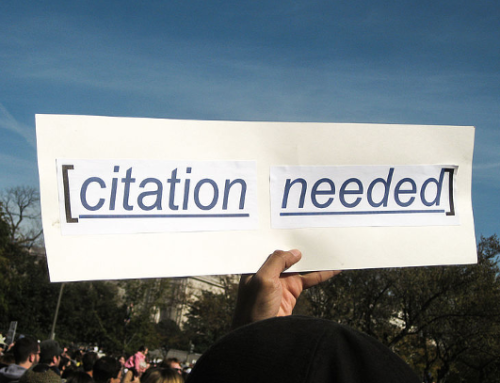Scene: Nyarugusu Refugee Camp, western Tanzania. 2012. A UNHCR (UN Refugee Agency) meeting for camp residents, primarily Congolese, who had preliminarily qualified for resettlement in the United States. The purpose of the meeting was to explain what to expect when being interviewed by U.S. Immigration officials. For both refugees and aid workers, this immigration interview is seen as the most crucial step in the process because it determines whether refugees will indeed be accepted by the resettlement country.
“If you forget your name, it will look like lies. It’s so important that you know the names of all your family,” a Tanzanian UNHCR representative said in Swahili.
“And that could ruin your entire case for resettlement,” he continued.
“This is why we called you here.
To tell you how things will proceed.
You shouldn’t do other things.”
While the purpose of this meeting was to prepare Congolese refugees for their interviews with U.S. immigration officials, a large portion of the time was spent discussing names. If someone could not remember the name of another person listed on their resettlement case, it could be dismissed. U.S. immigration officials, like UN aid workers, are trained to look for discrepancies in refugees’ cases. Any sort of discrepancy, even the inability to correctly recall a family member’s name, is treated as a lie and therefore becomes a reason not to trust the legitimacy of the refugee’s case to be resettled in a third country. These bureaucratic expectations, however, can be at odds with refugees’ cultural practices.
Congolese people have a flexible structure when it comes to their names. This fluidity does not fit well with the UNHCR database or the belief held by officials that refugees are lying or being coached to give answers. Congolese have names that they use more freely and more readily, and then they also have names that they keep close and only reveal to a select few.1 When I have asked about this, friends have explained this to me as a means of protection, resembling the presumed reason for using pseudonyms in anthropological writing. For Congolese people, their multiple names help to protect themselves from witchcraft, from identity theft, and from anyone with malicious intentions. It can also, one friend admitted to me, be used as protection from the authorities.
Congolese naming practices and their clashes with the humanitarian system offer two important critiques of the anthropological use of pseudonyms in our writing. First, even though Congolese naming practices are similar to the use of pseudonyms in that they share an assumption of protection, the ways they are interpreted are different. For Congolese refugees, their use of different names is read as duplicitous, while anthropologists’ use of pseudonyms is read as benevolent. Second, the anthropological use of pseudonyms rests on the assumption of a normative system of individuals having a transparent and singular “real” name. Ironically, anthropologists should know that societies around the world have flexible and complicated naming systems and that names are not a scientific certainty but a set of cultural preferences. Both of these critiques lead to an examination of the norms behind pseudonym usage and the assumption that their use is always both beneficial and protective.
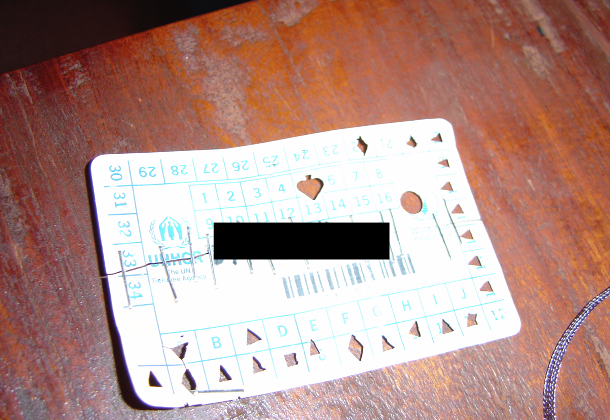
A ration card with its number redacted. If aid workers or government officials believe that Congolese using alternative names constitutes fraud, then they can confiscate ration cards and even strip Nyarugusu residents of their official refugee status.
The Assumption of Protection
When it comes to using pseudonyms, I have never received any pushback from Congolese refugees. I ask the people featured in my writing to choose their own names for publications. I tend to ask people to choose names once I am writing. Sometimes I wish that I had asked more people to choose pseudonyms while I was in Nyarugusu camp, because there are logistical challenges that can come with trying to contact people in a refugee camp that lacks widespread electricity and a strong cell phone signal. Fortunately, I have eventually managed to contact every person named in my publications. These conversations about pseudonyms have not been difficult and do not require much explanation. In my most recent text conversation about pseudonyms, I wrote: “Hi sister! I am writing an article, and what name can I use for you? I do not think I should use your true name.” Mambo dada! Ninaandika makala, na jina la nani naweza kutumia kwa wewe? Sidhani nitumie jina lako la ukweli. “No problem and feel at peace,” she replied, meaning that I should not worry about using a different name. “You can use the name Vinii.” Hakuna shida uwe na uwe na amani. Unaweza tumia jina la Vinii.
There are two scenarios in which I have used refugees’ names that appear on their official documents. The most common is if they no longer live in a refugee camp and have been resettled elsewhere, and the piece of writing gives no reason to expect they would face negative consequences from any states or the international humanitarian regime. In the other, I included a Facebook post from an Ethiopian man who was then living in Nyarugusu Camp in order to illustrate refugees’ reactions to Trump’s first refugee and immigration ban. The post contained not only his name and his words but also a selfie in which his face clearly conveyed his disappointment. While I could have blacked out identifying details, and even left out the photograph, I had his explicit permission to publish it in its entirety (Thomson 2017). His expression of disappointment of the U.S. refugee ban was not the same as being critical of the humanitarian system that governed the camp in which he lived. There was not the threat of deportation or the possibility of being denied humanitarian services. In fact, the one service he hoped to obtain from the U.S. had already been revoked by the ban he critiqued—third country resettlement.
In contrast to my use of pseudonyms for refugees, I do not ask aid workers or government officials to choose their own pseudonyms. Instead I anonymize them by giving their general, not specific, job title. These people become replaceable officials or representatives, indistinguishable from each other in my text. One reason for this choice is that while aid workers and government officials feature prominently in my narratives, they are not the characters on which I wish to focus. I prefer for them to blur into the background, as my work aims to illuminate how their often collective decisions affect refugees’ lives. In other words, my goal is not to fault the individual representatives themselves, but rather to implicate the humanitarian and state systems within which they operate. This choice also reflects how many refugees view the representatives and officials who control so much of their lives: as nameless bureaucrats, sometimes distinguishable by nationality, who come and go and are replaced by new bureaucrats who follow the same logic and take the same positions. At the same time, though, this practice reproduces the anonymity of bureaucrats and relies on this system in which they can continue to hide behind institutional protection.
There are two additional reasons that I tend to anonymize aid workers and government officials in my writing. First, a clearly defined power dynamic is also at play here. There are aid workers and government officials who do not agree with the procedures and protocols in Tanzanian refugee camps, and publicizing this stance could put them at risk for retribution from colleagues. These individuals share their views with me with the understanding that they will not be explicitly named. Second, the use of an even more generalized pseudonym here protects me. My goal of studying all levels of the aid bureaucracy means that I must navigate the power structures at play (Nader 1974 (1969)), from obtaining permits from the Tanzanian government to enter refugee camps to obtaining day passes to enter the UNHCR Global Headquarters. I cannot conduct research without the permission and cooperation of aid workers and government officials, and the process to obtain research permits or even visit the camp is deeply politicized and dependent on the goodwill of a long string of representatives and officials. While I do not know how many have read my work, I am certain that no individuals are identifiable. Anonymizing these people serves not only to protect them, but also my ability to continue my research.
Refugees, however, do not have the same luxury of institutional protection that aid workers do. There is a certain irony to this because the UNHCR states that refugee protection is its main task and priority. If refugees want to report anything to the UNHCR, they meet first with a Protection officer. Protection officers are the ones who deem which cases may be passed on to the Resettlement Unit. In other words, resettlement is secondary to protection. Resettlement is part of protection. On the UNHCR website (https://www.unhcr.org/), Protection is listed under “What We Do,” while Resettlement is linked under Protection. This then means that there is an additional irony that Congolese protective naming practices can be used to dismantle their protection cases with the UN Refugee Agency.
The fact that aid workers can use Congolese naming practices as a means of refusing protection cases reveals the power differential within the camp and also what is at stake for refugees. Congolese are well aware of what could happen to their futures if they were to be named in publications critical of the humanitarian system while still living in the camp. They fear that angering Tanzanian government representatives could lead to imprisonment, revoking of their refugee status, and even deportation. Crossing humanitarian aid workers could result in a denial of the services offered in the refugee camp, including rations, medical services, protection services, community services, access to resettlement, access to jobs with aid agencies, and even removal of refugee status.
And yet, it is also important to emphasize that in the camp, Congolese naming practices do not always protect refugees. Anthropologists should consider this possibility as well. We should not automatically assume that because the intent behind pseudonyms is protection that this will automatically be its impact. How could the use of pseudonyms be used against the people we represent in our writing? How might pseudonyms be used to discredit them? This presumption of protection within the anthropological use of pseudonyms also reveals the power dynamic between anthropologists as authors and authorities and those whose stories we tell. Refugees, and other marginalized groups, are often assumed to be suspicious and untrustworthy. How might our use of pseudonyms perpetuate the very systems of power we seek to illuminate and dismantle in our writing?
The Assumption of Singular Names
Scene: Later in the same meeting.
“You need to use your actual names.
Raymond Raymond? Say the one that’s used by UNHCR!
Even the spelling, you should write it correctly!
Who was telling him the name?” the UNHCR representative demanded.
“No one, he said it himself,” Raymond’s wife responded.
“Don’t do this in the interview,” the representative said, now addressing the entire crowd. “Don’t [,for example,] change Rashindi to Kashindi.”
“You changed the name!”
“No, you did!”
“Maybe the computer…” Raymond’s wife started.
“Names are problems,” the UNHCR representative interrupted.
“This is his name,” Raymond’s wife replied, crossing her arms. “Now…”
“We don’t want ‘now’… Continue,” the UNHCR representative said. In Swahili, saying “now” (sasa) often signals that the speaker is going to launch into a story or an explanation. In stopping Raymond’s wife from continuing, the representative did not want stories or explanations, but only seemed to want to continue with the accounting of everyone at the meeting.
UNHCR officials were adamant that the names refugees used in the interviews match the names in the UNHCR database. Officials were not willing to entertain the idea that the database could possibly be inaccurate. For them, the database was infallible, and the problem was the Congolese people and their naming practices.
For Congolese people, spellings are often not fixed, and names that sound alike, such as Rashindi and Kashindi, can be interchangeable. This particular Congolese practice is clearly at odds with the humanitarian system that manages the UN refugee camp in Tanzania. Aid workers and government officials expect Congolese refugees to adhere to one name, that which is listed in the official UN database – and presumably on future identity documents such as passports. Discrepancies in names or attempts to change official names are met with great suspicion and can be detrimental to refugees’ protection and resettlement cases. Naming practices around kinship are also potentially problematic: while Congolese might use the term “brother” and “cousin” interchangeably, aid workers and officials with a more biological interpretation of these terms see their mixed use as indicative of lying or uncertainty (Thomson 2012:194). This is another instance of cultural difference producing suspicions of dishonesty and manipulation among those in positions of power, even as they distribute aid (Feldman 2007). In this case, these cultural differences can even, as the UNHCR representative admitted, be the basis for rejection of their case.
There is an important parallel between humanitarian assistance recognizing one name without any variations and the anthropological use of pseudonyms. Both are premised upon the idea of a normative system of individuals having a transparent and singular “real” name that is knowable and traceable. Such names are thus actionable by institutions and those in power. As the humanitarian system in Nyarugusu camp illustrates, this same presumption positions individuals with multiple names as problematic, as wrong, and as even duplicitous. This is not a system that anthropologists should seek to perpetuate. It is harmful system that discredits people based on unfair presumptions. It is one that we should question, deconstruct, and even work to replace.
Questioning the Power and Paternalism of Naming Systems
Scene: The end of the meeting.
“Why are you at this meeting, for your research?” the Tanzanian representative asked, pulling me aside as I attempted to file out the door with the Congolese refugees.
“Yes, for my research,” I replied.
“You know refugees change names.
It’s a problem.
We are trying to help them here.”
The ways in which aid representatives and government officials respond to Congolese naming practices also reeks of the paternalism inherent in the global humanitarian system. Why is it that Congolese refugees need to adhere to the names in the UNHCR database? How did the initial data entry become the infallible, objective, official record, and why are any claims that the database may have errors automatically dismissed? But perhaps the most important question here, especially for anthropologists, is the one that directly questions the paternalism itself. Who should get to decide what names get used?
Assuming that pseudonyms are an act of protection is akin to the aid representative’s statement, “We are trying to help them here.” Of course, many times the people featured in anthropological writing do not want to be obscured by pseudonyms; they want credit for their thoughts, ideas, and experiences. In addition, pseudonyms are often inadequate in disguising someone’s identity because readers from that community can discern who they are even if their name is changed. In my research where Congolese people are often ready with pseudonyms to use, this inadequacy has led me to change other identifying factors in my writing. I have changed ethnicities, timelines, places, forced migration routes, family structures—all with the explicit approval of those whose stories were featured. I have done this because I trust Congolese refugees and believe them when they have expressed their fear of retribution from aid workers and government representatives.
But is that enough?
Examining the assumptions that underpin the anthropological use of pseudonyms leads us to larger questions:
Why is it that when Congolese refugees use alternative names, it is read as lies?
Why is it that when anthropologists use alternative names, it is read as protection?
How can we better challenge these hierarchies of credibility?
What might protection beyond pseudonyms look like?
What might the anthropologist’s responsibility be if their attempts at protection are actually used against the people whose stories they tell?
Anthropological assumptions about pseudonyms—that they are protective and that individuals have singular names—are paternalistic. When it comes to repercussions of using pseudonyms, anthropologists seem to skate by on good intentions while people like Congolese refugees might be punished, whether it be for their own usage or for an anthropologist’s usage. The anthropological reliance on “we are trying to help them here” is misguided, ineffectual, and needs to change.
Acknowledgements: My gratitude to Erica Weiss and Carole McGranahan for initiating this examination of the anthropological use of pseudonyms and for their editorial guidance and excellent suggestions for revisions. Kate Fischer provided insightful comments and edits on this piece in its earlier versions. None of this would be possible without the residents of Nyarugusu camp, aid workers, and government officials who have shared their knowledge and experiences with me. I am especially grateful to Esther Zagabe, Kaskil Ibrahim, and Severin Nyamuroha who have taught so much about Congolese names and the humanitarian system.
Notes:
[1] There are some parallels to the formal names and nicknames employed in the United States, where the name one uses with friends might not be one’s legal name, but this system is more fluid, developed, and widespread.
References
Feldman, Ilana. 2007. “The Quaker Way: Ethical labor and humanitarian relief.” American Ethnologist 34(4): 689-705.
Nader, Laura. 1974 (1969). “Up the Anthropologist—Perspectives Gained from Studying Up.” In Reinventing Anthropology, edited by Dell Hymes, 284-311. New York: Vintage Books.
Thomson, Marnie Jane. 2017. “Committee on Ethics: Rage and Despair: In Response to Trump’s Executive Orders.” Anthropology News website, September 6. Accessed November 19, 2021. https://anthrosource.onlinelibrary.wiley.com/doi/abs/10.1111/AN.594
Thomson, Marnie Jane. 2012. “Black Boxes of Bureaucracy: Transparency and Opacity in the Resettlement Process of Congolese Refugees.” Political and Legal Anthropology Review 35 (2): 186-205.
Cite as: Thomson, Marnie Jane. 2021. “Names are Problems: For Congolese Refugees, for the Humanitarian System, and for Anthropological Writing.” In “Rethinking Pseudonyms in Ethnography,” edited by Carole McGranahan and Erica Weiss, American Ethnologist website, 13 December 2021, https://americanethnologist.org/features/collections/rethinking-pseudonyms-in-ethnography/names-are-problems-for-congolese-refugees-for-the-humanitarian-system-and-for-anthropological-writing
Marnie Jane Thomson is an Assistant Professor of Anthropology at Fort Lewis College in Durango, Colorado.
